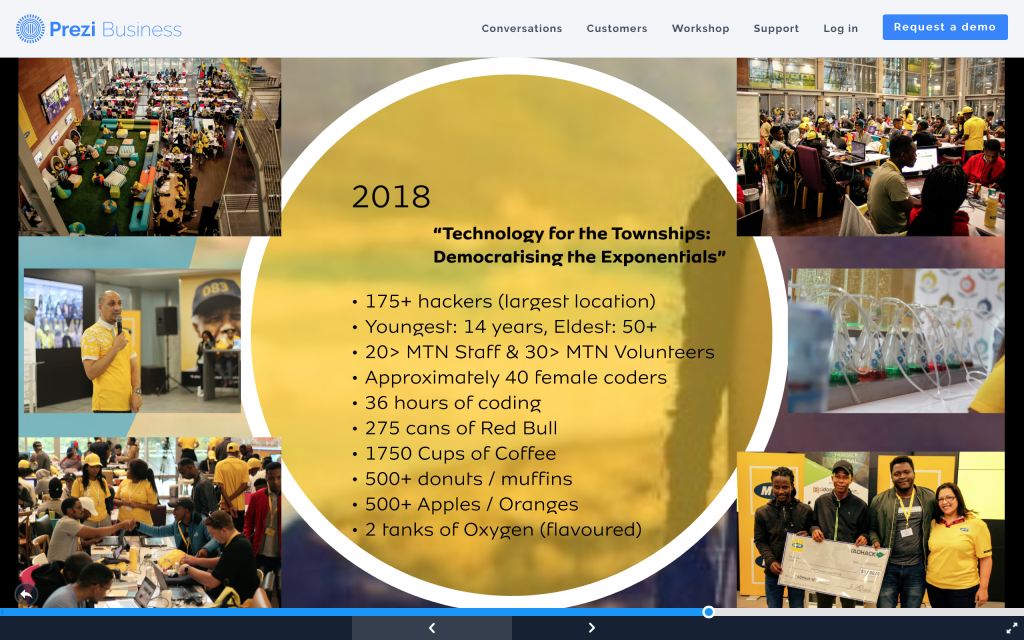 The session “Programmable Telecoms for Telcos” covered a morning and afternoon session slot on Day 2. The presenters included:
The session “Programmable Telecoms for Telcos” covered a morning and afternoon session slot on Day 2. The presenters included:
- Sebastian Schumann, DT (previously immmr), on his experiences with immmr
- Yusuf Kaka, MTN, on their working in fostering innovation with MTN
- Greg Sikora, OVOO, on their service plane
- Werner Eriksen, WorkingGroupTwo, on their open platform
- James Body, Telet Research, on the deployment success with MONEH with CH4lke Mobile
- Piyush Gaur and Omer Shaaeldin, Telus, on their conversational interface work with Alexa and Google Assistant
- Petr Eropkin, Etisalat, on their work with UCaaS and CPaaS
Sebastian gave a heart-felt presentation that hits on many of the issues I’ve see where innovation projects within telcos go awry. The issues and learning identified here must be used as a guide for any telco innovation project. Touching core services, where the proposition is not as simple as driving more revenue, and potentially has a substitution component, brings out the anti-bodies in the organization.
Even though having senior telco executives using your service can for some be considered a win. If they are not the core demographic, don’t do it. Today service success comes from solving problems for a segment of the telcos’ customer base. You must focus intensely on that demographic, and track the usage data. The openness and honesty of Sebastian’s presentation is wonderful.
Next was Yusuf Kaka’s presentation “Long live the Telco Hacker!
Why MTN is choosing to engage the development community through initiatives like TADHack.” Ideamart in Sri Lanka has created a nationwide problem solving community built on programmable telecoms. They’ve significantly impacted the financial results of Dialog, the telco, and more importantly solved problems for people in Sri Lanka and increased employment. MTN are following a similar path, Yusuf’s presentation is a great template for most developing market telcos to follow.
Linked to the Design Thinking and Effectuation workshop on Day 1. Yusuf showed by they use those processes within their framework. Wishing Yusuf the best for 2019 as he deploys their recipe across the MTN Group.
You can see his prezi here.
Greg Sikora has moved from Telestax over to OVOO, his presentation reviewed the evolution of the telco services plane and how OVOO is meeting that evolution.
Before lunch Werner Eriksen provided an update on WorkingGroupTwo with his presentation, “From Lego to Plasticine. Molding a platform for product development.” The 5 years of WG2 development has certainly been a journey! Today its’ great to see them as an independent company, with deployments. Many telcos use open source, though are not necessarily that open about it. WG2 are one to watch!
After lunch we kicked off with an excellent presentation and demo on “Conversational Interfaces: leveraging Alexa and Google Assistant when interacting with Telco Product and Services” by Piyush Gaur and Omer Shaaeldin, Telus. Fortunately the internet access issues had been repaired so this remote presentation worked perfectly.
I’m surprised more telcos have not taken advantage of building such interfaces for their customers for basic customer interactions and services. An important added benefit of building this is Piyush and Omer have built a wealth of experience in the APIs and platform to enable such innovations.
For telcos in developed markets their role in nationwide problem solving / innovation ecosystems is far tougher than in developing markets. But I think they’ve taken a pragmatic approach, built some valuable skills, and can help Telus’s enterprise customers harness voice as an interface in the Canadian market.
James Body has been part of TADSummit since 2014, unfortunately he couldn’t get permission for the trip to Bangkok, else he would be in the 6 for 6 club. However, James shared an important case study in building out MONEH through open source software and then deploying with Ch4lke Mobile in his presentation: “Practical Experiences of Multi-Operator Neutral Hosting”.
What James and his team have achieved with MONEH / Ch4lke Mobile is creating a new category of mobile operator that is necessary for countries to achieve the mobile coverage and open innovation ecosystem they desire.
I must thank Petr Eropkin, Etislasat, for stepping in as Janne Timonen, Telia, was not able to make the session. I’ve presented to Etisalat over the past couple of decades on telecom APIs and cloud-based services. It was great to see Petr making CPaaS and UCaaS a reality in Etisalat.
Design thinking was shown as an important part of the process. Something we’ve highlighted at TADSumit for several years. Petr also shared their localization approach, which is vitaly necessary for Etisalat to make CPaaS / UCaaS a success in the UAE.
We wrapped up with a panel examining the impact of programmable telecoms on telcos, in the near and longer-term. It was a fun way to wrap-up the session, with excellent insights and audience participation.
